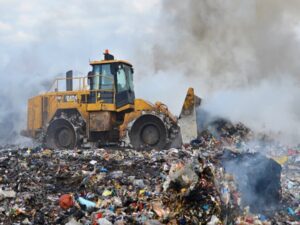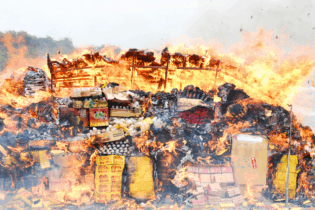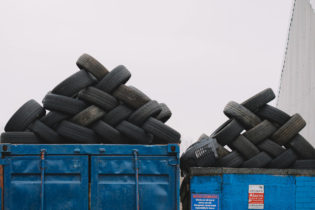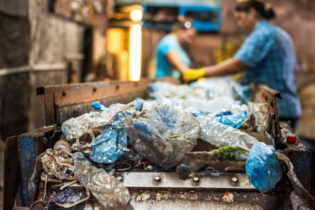Landfills nationwide are filling up at an alarming rate due to growing waste generation and municipalities have been warned that action plans are needed as the country runs out of landfill space.
How the City of Cape Town and Joburg are addressing the problem: There are two active landfill sites in the City of Cape Town – the Coastal Park landfill near Muizenberg and Vissershok landfill in Table View. The city’s disposal branch manager, Margot Ladouce, says Coastal Park will be closed in 2026. “All the waste will then be directed to the Vissershok landfill and that has airspace for about the next 14 years,” she says. The city has implemented several programmes and drop-off sites where recyclable waste is accepted to reduce the household waste that is sent to landfills. According to Ladouce, the municipality has historically been able to divert about 20,000 tonnes of recyclable waste per financial year. She further said the city is also working on projects to divert builders’ rubble and garden waste from landfills. Ladouce says the municipality will create more facilities where recyclable materials are processed and sold. Two materials recovery facilities will be built at Coastal Park and elsewhere in Athlone. “We have strategic plans that we’re busy running. Importantly, the approach that the city has adopted is also to focus on diversion of waste from landfills to ensure that we can extend the landfill airspace that’s available,” said Ladouce.We’ve got one clean materials recovery facility and that’s where we take recyclables that can be sold to the market.
Johannesburg The City of Johannesburg’s waste management company, Pikitup, runs the waste management plan in the metro. Khosi Baker, the acting chief operations officer at Pikitup, said some landfills in Joburg are 50 years old. Baker said Pikitup runs a ‘Separation at Source’ programme, urging households to separate recyclable and non-recyclable refuse. She also said recyclable waste can be sent to 42 different drop-off facilities for sorting. Baker denied claims that the City of Joburg does not compact its landfill waste efficiently. “It is happening, it’s not true that it’s not happening but it’s becoming more and more of a challenge because of the volumes of waste that we’re receiving on a daily basis and the work surface that we’re working on,” she said. According to Baker, the city is working on a biodigester system to tackle organic waste. “This project will then be able to offtake almost a third of our waste for biodigestion.” The gases produced by this biodigester will be used to fuel city buses. “Due to the age of our landfills… as you continue disposing, the landfill sort of goes into a pyramid then the surface you tipping becomes smaller and smaller… but the volumes of waste are getting more and more. Due to the small work surface, compaction becomes slower,” Baker said. “We have implemented as the City of Johannesburg the programme called household separation at source. This programme requires residents to separate the recyclable waste from the non-recyclable waste,” Baker concluded.






